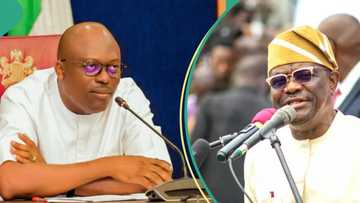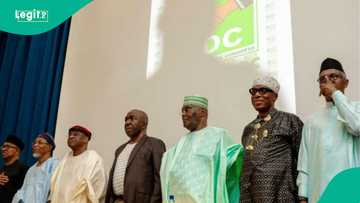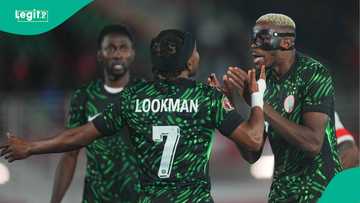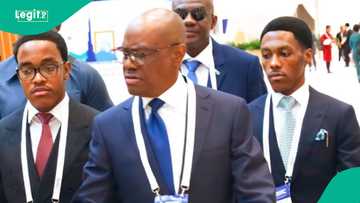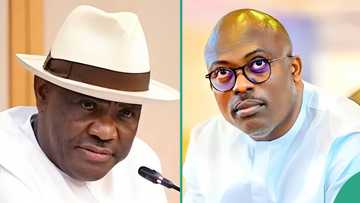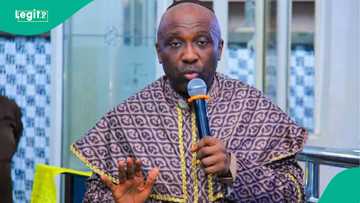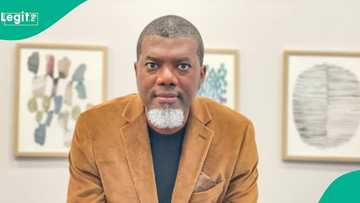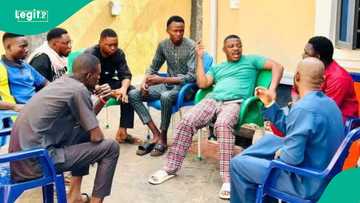Faith Under Fire: Nigeria’s S'East Muslims Caught in Crosshairs of Disinformation Amid Biafra Push
- In Nigeria’s southeast, a separatist uprising is rocking the Igbo-majority region and at the same time putting native Muslims at risk
- The Biafra movement, largely driven by loud, breakaway agitators in the diaspora, is notorious for spreading falsehoods as facts
- Amid rising safety concerns, this investigation showed that pro-Biafra disinformation machines have launched a campaign of targeted attacks on a section of the Igbo ethnic group
Legit.ng journalist Ridwan Adeola Yusuf has over 5 years of experience covering the intersection of Africa’s conflict, human rights, and geopolitics.
Warning: This report may contain graphic images which may be disturbing to some people. Reader discretion is advised.
Awka, Anambra state - In a quiet neighbourhood in Igbo Eze South local government area (LGA) of Enugu, in Nigeria’s restive southeast, Siraj Ugwu connects with fellow Muslims to exercise their right of freedom of thought, conscience and religion.
A “full-time Da'awah practitioner” from Alor-Agu community, Ugwu leverages the social media age to propagate Islam, the religion of approximately 446 million people in Africa and more than 1.8 billion worldwide.
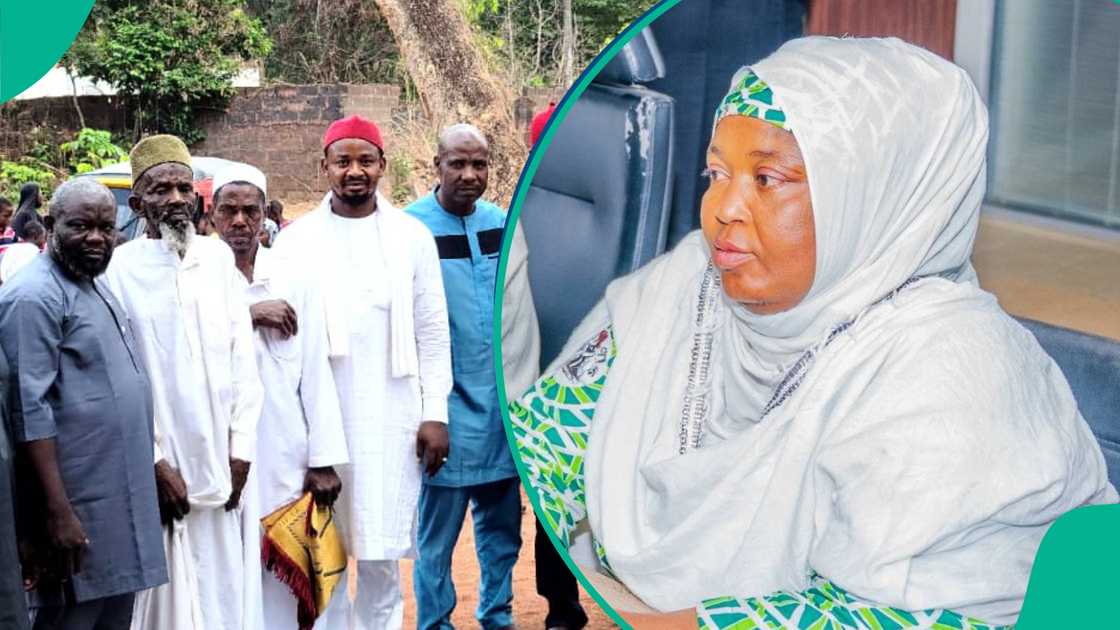
Source: Twitter
He posts multimedia items showing his activities on X (formerly Twitter). But freedom of belief, once a bold symbol of devotion to a Supreme Being, is tactically hampered under intimidation. What used to be a mark of unalloyed personal conviction has somewhat become a burden to social media-savvy Muslims.
“Just one kanoooom, all these would kiss dust. Start to (sic) relocating to the North before our USB government completed (sic) the military recruitment. Here in Biafraland (referring to the southeast region) we don't treat cancer, we cut them off,” Edu Nwa Biafra, with the X handle @chine4u, tells Ugwu while commenting on a pictorial by the latter, the threatener's tone tinged with confidence. “We don't need your useless Islamisation.”
“Kanoooom” as used by @chine4u infers the sound of a gun or an improvised explosive device (IED) detonation, while “kiss dust” alludes to death resulting from killing.
The USB government he mentioned is the acronym of the United States of Biafra, a supposed governing body associated with Simon Njoku Ekpa, a now-detained Finnish-Nigerian separatist leader. Ekpa leads ‘Autopilot’, a faction within the proscribed Indigenous People of Biafra (IPOB), which is fighting for a breakaway state in south-eastern Nigeria.
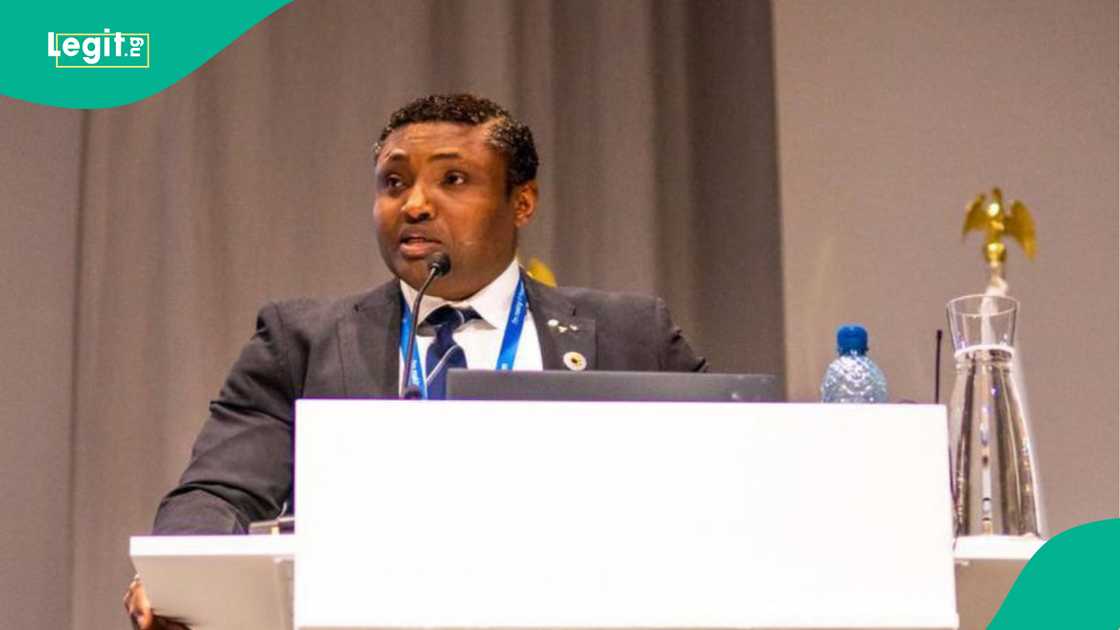
Source: Twitter
Biafra, a transnational movement, has dyed-in-the-wool secessionists scattered across the globe - Cameroon, Ghana, Ivory Coast, Liberia, Sierra Leone, Senegal, South Africa, Burkina Faso, Germany, the United Kingdom (UK), USA, Finland, et al.
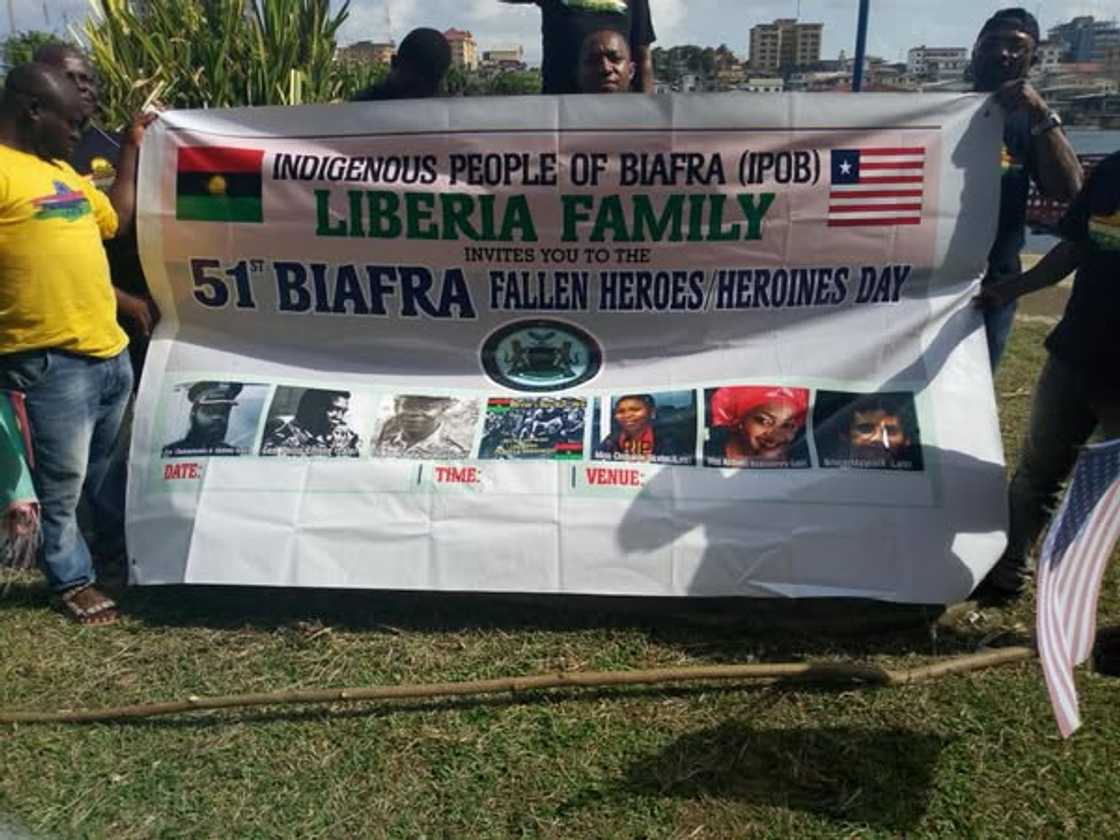
Source: Facebook
The Finnish Central Criminal Police arrested Ekpa on November 21, 2024, with Lateef Fagbemi, Nigeria’s attorney-general, disclosing in May 2025 that the African nation's government is working closely with the authorities in the European country to extradite the controversial Biafra agitator. Ekpa, a former Nigerian athlete, is expected to be repatriated for prosecution over offences allegedly committed through the use of social media, especially X. His activities have been said to undermine Nigeria’s national security and sovereignty.
To report on this story, this reporter spent a month observing the social stigmas Igbo Muslims face practicing their preferred faith in crisis-hit southeast states. Correspondingly, interviews with key stakeholders and top experts of African extraction and digital forensics were conducted to determine the scope of the breach.
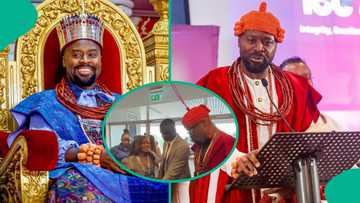
Read also
Olu of Warri's aide's swift response to female executive's handshake attempt elicits reactions
Perusing dozens of X tweets from accounts with ties to Ekpa, IPOB, and the Biafran movement, disinformation, bigotry, and threats troublingly emerged as marked features.
The threats—potent—have warned Igbo Muslims to either renounce Islam or face consequences.
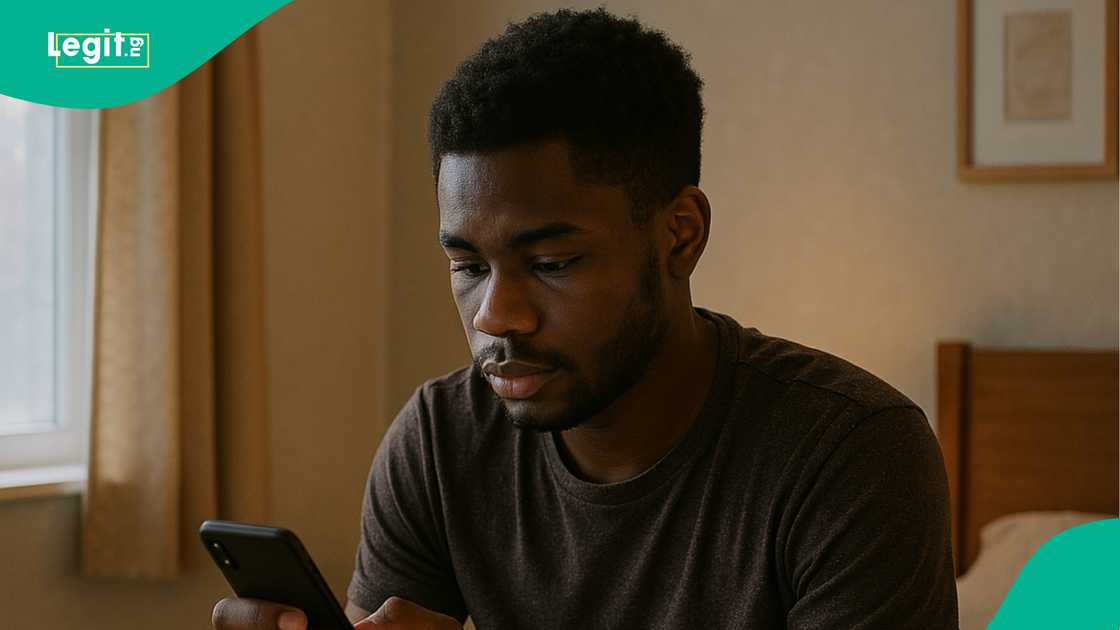
Source: UGC
Tweets from a coordinated network of accounts targeting Ugwu with threatening messages can be seen here, here, and here. (Note: See more instances listed at the end of this report.)
“These threats are usually framed as 'protecting Igbo culture', but in reality, they create fear. They have deeply affected my daily life—I have to be cautious about where I go, how I dress, and even what I say in public for fear of being targeted,” Ugwu, a member of the Nigeria Inter-Religious Council (NIREC), told Legit.ng.
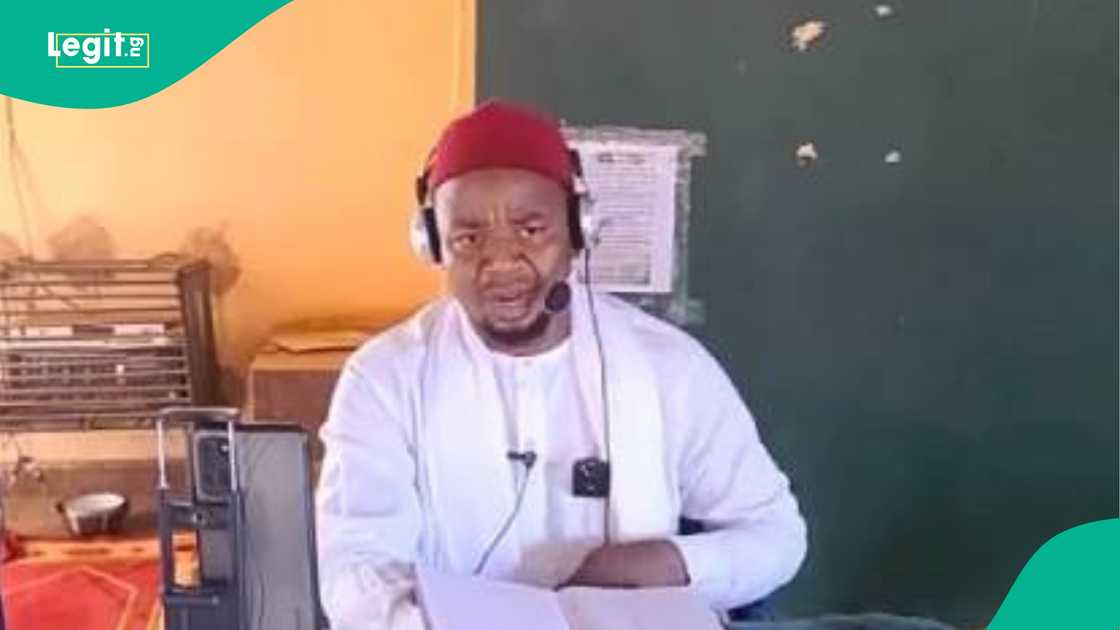
Source: Original
Ugwu joined X in 2013, but hate speech against Igbo Muslims spiralled since the platform became more permissive towards certain controversial online behaviours.
He first became aware of the hazard through a threatening message shared in a WhatsApp group. His initial reaction was one of confusion.
“I wondered why someone would want to harm others simply because of their faith. But with time, I began to understand that ignorance and misinformation are the roots of such hatred,” said Ugwu.
Farooq Kperogi, a US-based Nigerian professor of journalism, faulted X owner Elon Musk's explicit commitment to less stringent moderation, contending that ‘this decision by xAI framed as a pursuit of free speech has inadvertently fostered an environment where threats, hate speech, misinformation, and harassment have luxuriated’.
“Numerous credible reports and independent analyses confirm spikes in harmful and threatening rhetoric, indicating that diminished oversight often undermines user safety rather than enhancing open dialogue,” Prof. Kperogi lamented during an exclusive audience with Legit.ng. “Previously, verification conferred at least partial credibility. Users generally viewed verified accounts as trustworthy sources due to the stringent checks conducted by Twitter. That is not the case anymore.”
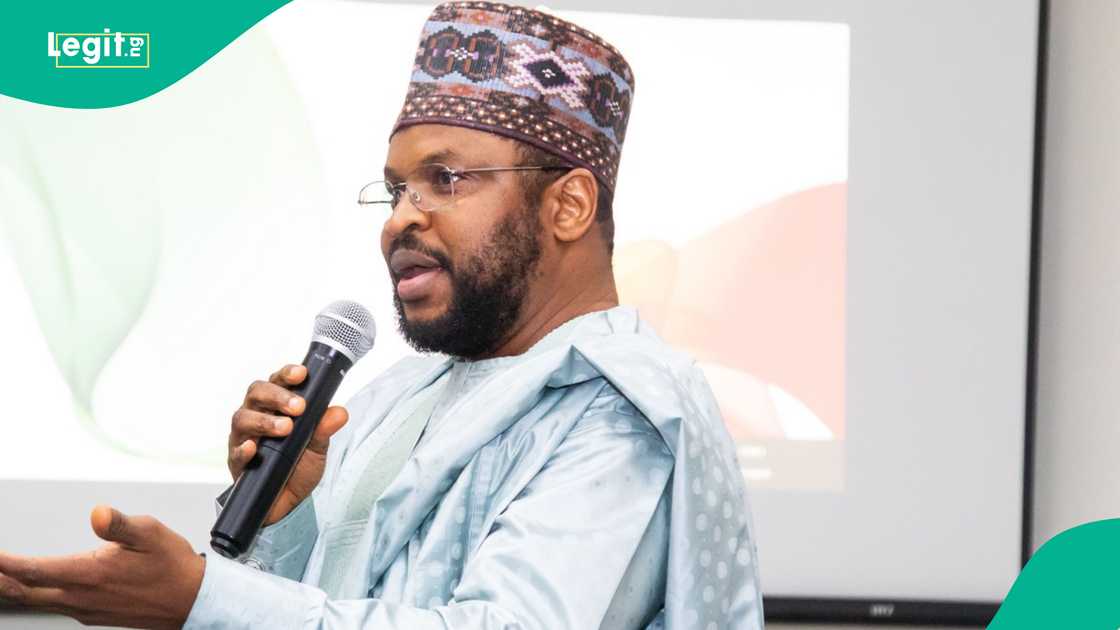
Source: Facebook
Although they are a minority, Ugwu and several of his tribesmen were born Muslims. But Ekpa-inspired Biafra's 'media warriors' pass off claims on social media about Islam being an abomination in Igboland.
“I was born into a Muslim family. My father who became Muslim long before 1930 told us what drew him to Islam was the clarity, structure, and emphasis on justice and peace. The Quran’s message resonated deeply with him, likewise me.
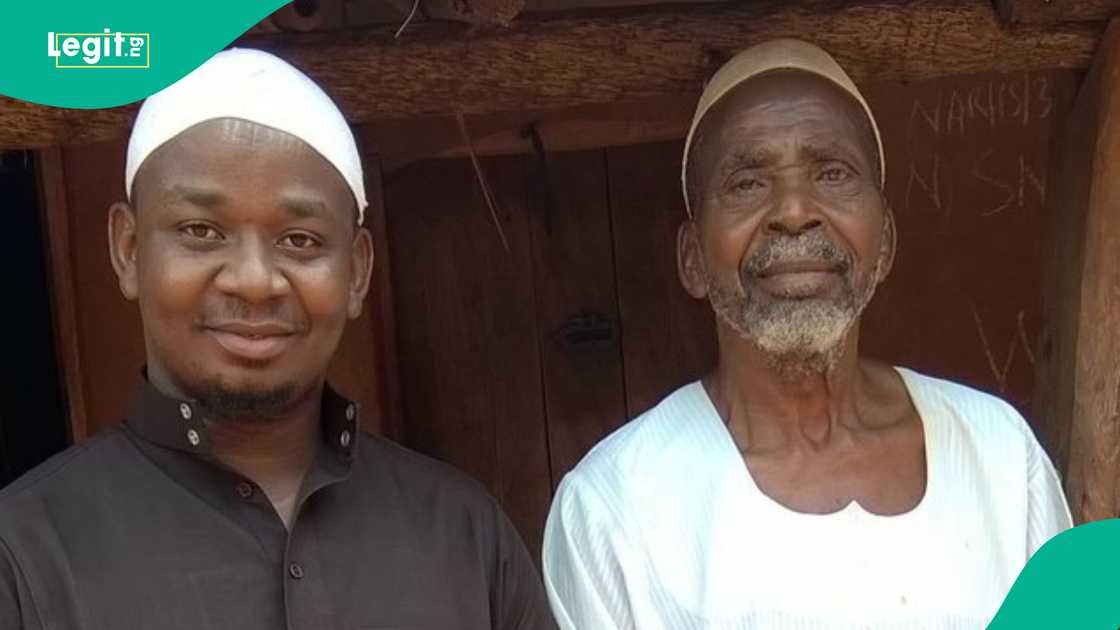
Source: Twitter
“As for my Igbo heritage, I see no conflict. Islam is a religion; Igbo is my culture. I still speak my language, celebrate cultural activities that do not contradict my beliefs, and honour my heritage," Ugwu said, explaining that both can co-exist beautifully.
Barrister Isa Uthman Tochukwu, Besira Ugochi Abdullahi, and Abia-born Ifeanyi AbdulRahman are other Igbos who separately confirmed to Legit.ng that they are Muslims by birth, nullifying the claim that being a Muslim is alien to Nigeria’s southeast region.
For Ugwu, he is convinced his cultural identity and faith complement each other finely.
He explained: “My faith guides my relationship with God and fellow human beings, while my culture shapes my worldview and social interactions. Islam encourages respect for one's culture as long as it does not contradict core religious teachings.”
Elaborating on the challenge faced in a predominantly Christian Igbo community, Ugwu stated that social exclusion and stereotyping are common.

Read also
Lookman: Activist reacts as Osimhen reportedly threatens to quit Nigeria’s AFCON 2025 squad
“Some people automatically assume I'm no longer "Igbo enough" because of my faith,” said Ugwu amid strong concern. “Even attending family functions can be emotionally draining because I often have to defend my identity and beliefs.”
Like Ugwu, Barrister Tochukwu, an indigene of Igbo Eze South LGA of Enugu state, is an ardent X user. More than 26,000 people follow him. Tochukwu has experienced his own share of threats, abuse, and harassment.
“On my X page, you will see several threats coming from my people; Igbos from the southeast. But in my community, Alor-Agu, we don’t actually have a problem because relatives have diverse religious affiliations.”
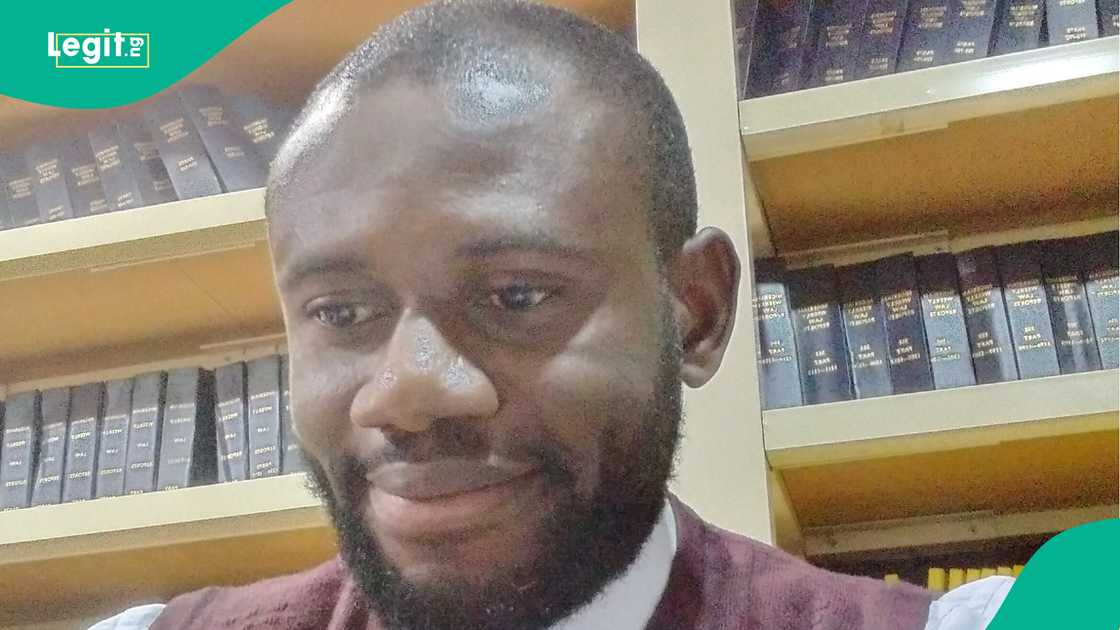
Source: Facebook
Tochukwu added:
“Religion is a personal thing. It is even constitutionally guaranteed under Section 38 of the 1999 Nigerian constitution.”
To be safe from unforeseen dangers, threats or risks, Ugwu has become more security-conscious, avoiding public displays of his faith in certain places. He also reports some dangerous threats to law enforcement agents, especially the police.
“It’s not ideal, but it’s the reality for now,” he lamented.
Dangerous dimension of Biafra movement
The bloody civil war in Nigeria lasted from 1967 to 1970. Since then, the quest for the attainment of Biafra has been relatively peaceful. But recently, a steady drift towards violence crept into the struggle.

Read also
Osupa: Man quotes Nigerian law Islamic cleric broke, demands arrest over troubling prophecy
A statement by the Nigerian Army disclosing that troops raided an IPOB camp in Abia state on June 13, 2024, and recovered, among others, an AK-47 rifle, can be seen below:
The violence, allegedly carried out by Biafra rebels with allegiance to the Eastern Security Network (ESN) and the Biafra Liberation Army (BLA), has stoked fears. In Anambra South senatorial district of Anambra state for instance, insecurity perpetrated by separatist elements forces residents to stay indoors every Monday to protest against perceived marginalisation and demand the release of hugely influential Biafra separatist leader, Nnamdi Kanu.
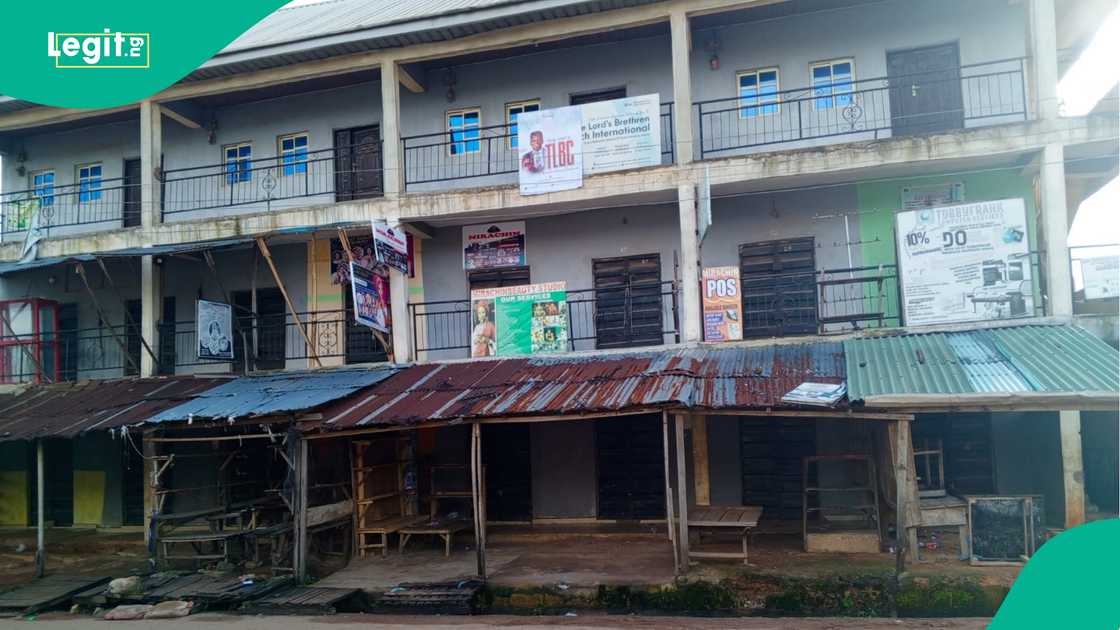
Source: Original
In what is a bizarre twist, several individuals among those pushing for Biafra 'because Nigeria is discriminating against them' are the ones also exhibiting prejudice towards people who pose no harm.
Since 2021, the separatist conflict has claimed at least 1,155 lives, according to a report by Al Jazeera in January 2025.
Journalist Fredrick Nwabufo, who now works with Nigeria’s leader, President Bola Ahmed Tinubu, as senior special assistant on public engagement, commented on the brutality often linked to the protracted Biafran campaign.
A past victim of separatists’ threats himself, he described their activities as “murderous”.
In the same vein, Prof. Kperogi pointed out that online hate speech can turn into offline hate crimes, as Biafra secessionists' threats could constitute a genuine menace.
“The intentional circulation of demonstrably false and malicious information against minorities, in this case Igbo Muslim minorities, is often the precursor to systematic mass murder. As the saying goes, genocide begins with words. When hate speech is repeated multiple times against people who are too few or too symbolically invisible to fight back, it can transform into a manifesto for mass slaughter,” the scholar warned.
Prof. Kperogi is not far from the truth. On November 10, 2021, Ogoegbunam Ifeanyichukwu Aniekwena (also known as Achika General), a youth leader in Ogidi town in Idemili LGA of Anambra state, was gunned down by suspected IPOB separatists after he simply opposed the sit-at-home exercise.
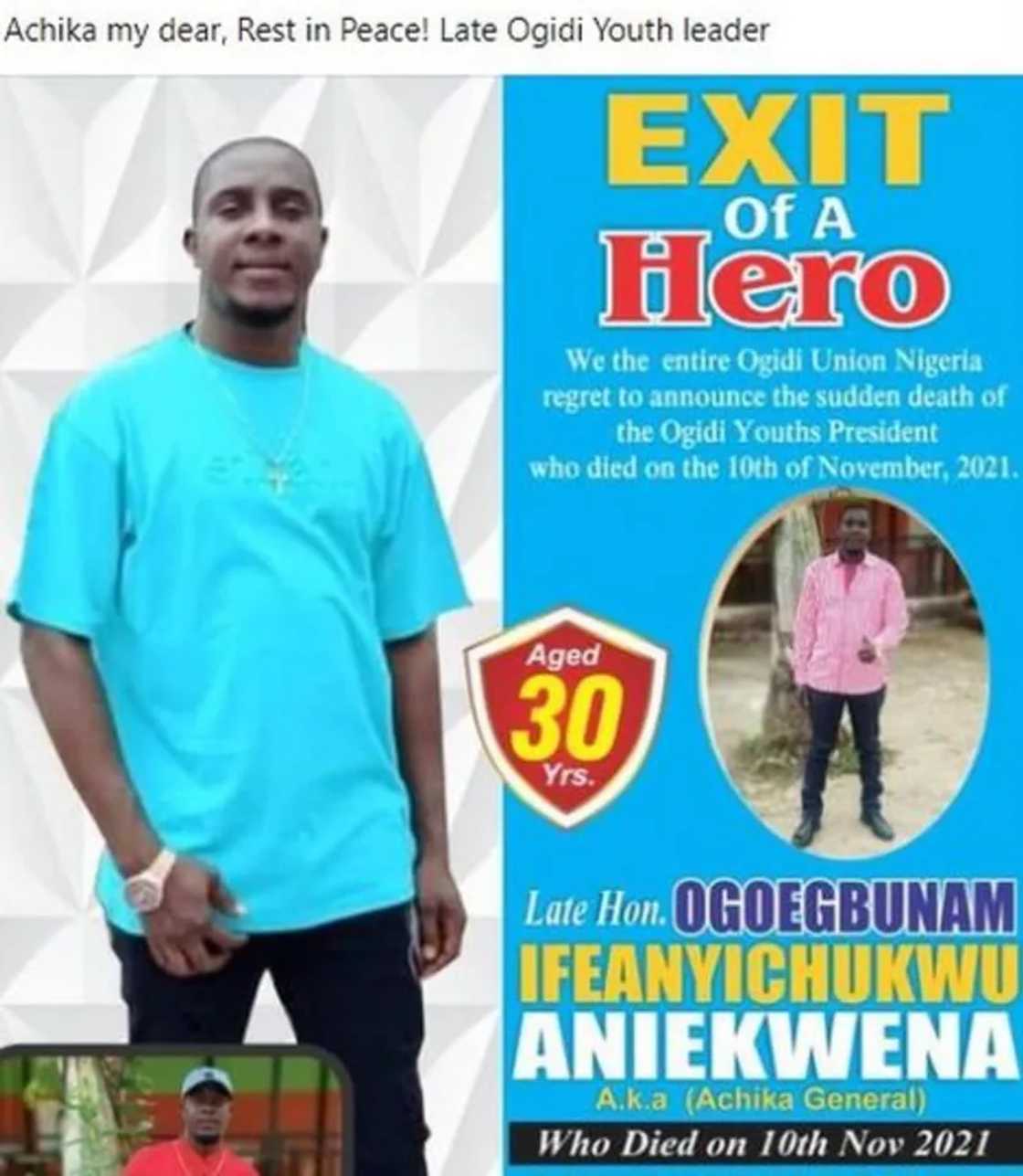
Source: Facebook
A 2022 BBC investigation blamed his killing on a Facebook Live done by Nneka Igwenagu, a UK-based "media warrior" fighting for the Biafran cause.
In a broadcast from London, she targets a youth group in Anambra, which had been resisting pressure from IPOB for people in the region to shut down businesses and schools in solidarity with Kanu.
Kanu is currently being held by Nigerian authorities and faces terror charges, which he denies.
Speaking in Igbo, the most widely spoken language in south-eastern Nigeria, Ms Igwenagu refers to them as "chickens", saying: "All of you are not supposed to be alive… A chicken that ate its eggs, don't you see it is not supposed to live?"
A few weeks after the broadcast, Aniekwena, the leader of the youth group she was referring to, was shot and killed. No one has been charged over his death.
In October 2021, the house of Joe Igbokwe, a prominent chieftain of the ruling All Progressives Congress (APC), was razed in his native Nnewi, Anambra state. Igbokwe pinned the blame on IPOB proponents, following several threats he received. Lagos-based Igbokwe had been one of the fiercest critics of Kanu and IPOB's online activities.
Since the attack, Igbokwe has elected against travelling home over fears for his life.
Aishat Obi, the commissioner representing the Southeast in the National Hajj Commission (NAHCON), shared that women were the prime targets due to their Islamic dress and were subject to hostility that stemmed from the civil war. The unsuccessful secessionist rebellion ended in 1970, but some wounds are yet to heal with resentment harboured towards the Muslim Hausa-Fulani community from the north, which dominated the government at the time.
"They see you as a saboteur," Ms Obi told BBC. “Even inside a vehicle or on a motorcycle, they call you 'Hausa person’.”
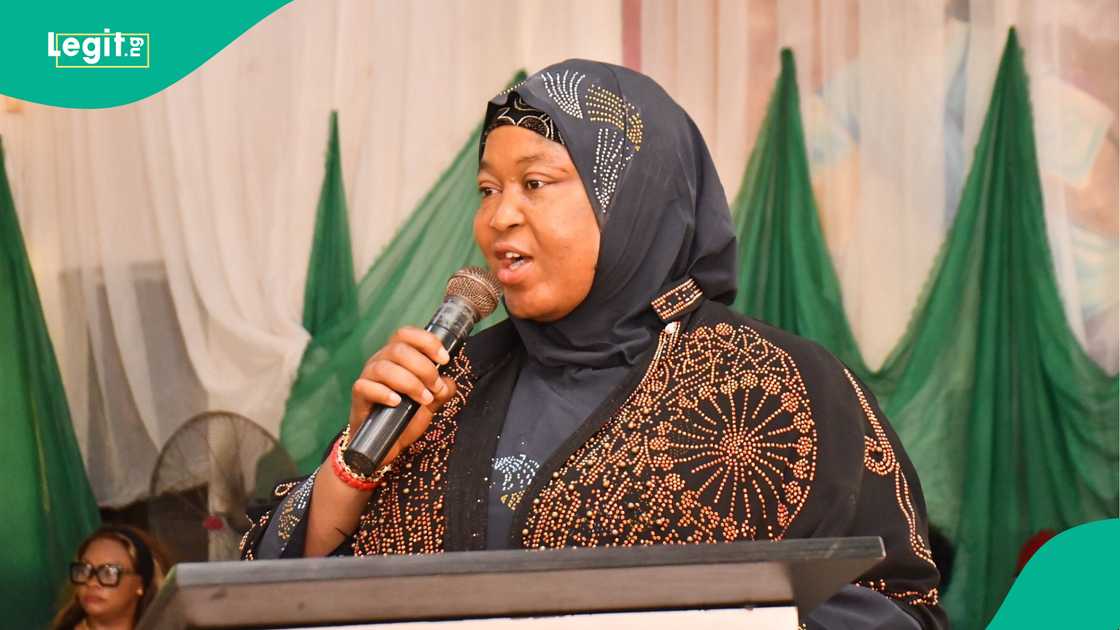
Source: Facebook
There are cases of attacks on Muslims and mosques in the region.
As pinpointed by Obi, hijab-using Muslim women are top on the list of those exposed to danger.
In May 2022, a heinous assault one would not even wish on one's worst enemy happened in Anambra when a heavily pregnant Harira Jibril, 32, and her four children aged between 2 and 9 years old were gunned down in cold blood, without any provocation.
Ahmed, the widower, narrated what happened to Daily Trust: “They were coming back home after she visited her sister who was living in the nearby town. She and the four children were all wearing hijabs; that was why the gunmen targeted them.”
Fact-checking anti-Muslim rhetoric by Biafra campaigners
Anti-Muslim rhetoric perpetuates hate and marginalisation within public discourse. Permitting this threatens democratic values and inclusivity.
Taking this into account, we fact-checked some of the comments made on the page of one of the most prominent Igbo Muslims on X - Ugwu.
‘Islam is banned in Biafraland’
A verified account, @TochiNna, posted thus on April 11, 2024: “Biafra will chase every single one of you out to go pray in Kaduna. What is this? Islam is banned in Biafra land.”
Similarly, @AfunwaEkedon wrote on January 6, 2024: “As soon as #Biafra is declared you will join your people in the North. Islam is not welcome in Biafra land.”
Also, @Abangwu4 said: “It is a taboo for an Igbo to be a Muslim, it is very very odd.”
We asked Uche Okafor-Mefor, former right-hand man to Kanu, the IPOB leader, if that is true. Mefor knows the Biafra secessionist movement too well.
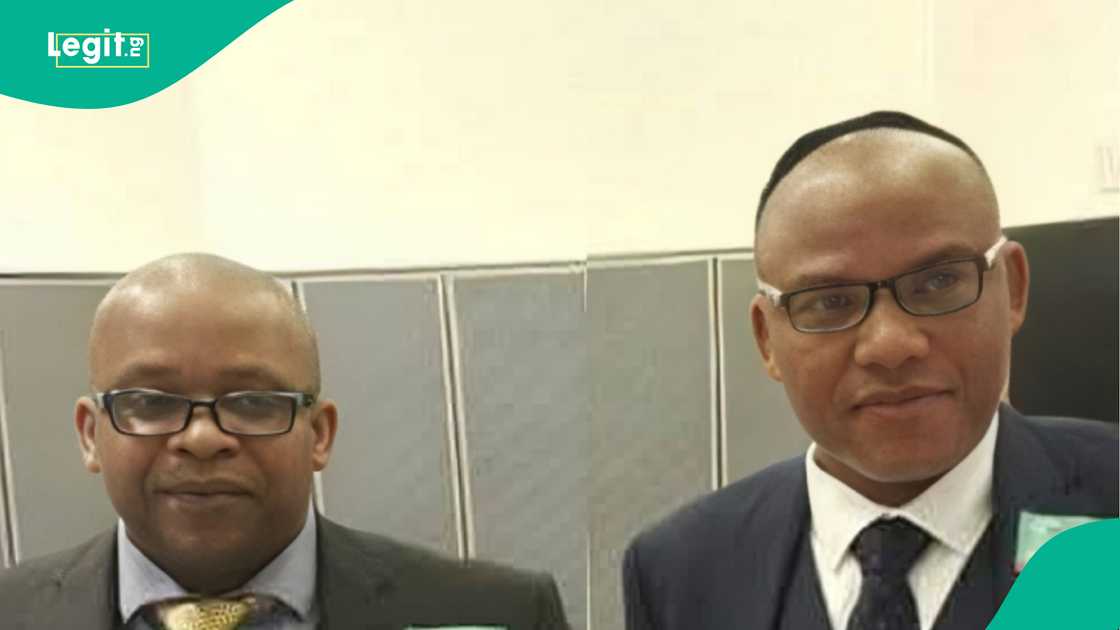
Source: Facebook
The erstwhile IPOB deputy leader’s response is as follows:
“The people of Biafra (south-east, Igbo-Biafra) are a people of faith with different religious and spiritual persuasions. The Biafra of our dream is an egalitarian, virile, multi-faith society underpinned by democratic and human rights ethos. There must be religious freedom with strong institutions endowed with full enforcement powers and implementation mechanisms. We do not subscribe to a theocratic society. We favour a secular society where everyone is equal before the law.
“I have heard people talking about Biafra being a Jewish society, that on its own is an autocratic, authoritarian, and extremist view—a hallucination too many and which we must consistently frown at.
“We subscribe to Biafra, where social justice, human rights, and fundamental freedoms are sacrosanct and not criminality.”
Non-Muslims to be subjected to Sharia?
@Abangwu4 insinuated that Sharia (Islamic law) would be instituted as a main body of civil and criminal law in the five southeast states.
He commented:
“Imagine introducing Sharia into Biafra land to replace our traditional and cultural Omenala and Odinala… You too imagine it, it is not possible and won't be allowed. In the United States of Biafra, Islam is not an official religion recognised by the Biafran Government.”
But, in a correspondence with Legit.ng, Sheikh Dr Idris Oni, the acting head of the Islamic Studies department, Crescent University, Abeokuta, Ogun state, Nigeria, said that is not the case.
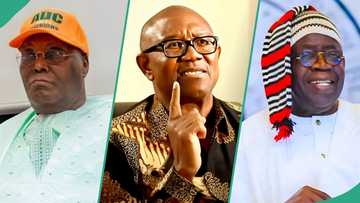
Read also
2027 election: “How Peter Obi’s defection to ADC will affect Tinubu, Atiku”, Analyst explains
The religious scholar spoke about the applicability of Shariah rulings.
He clarified:
“Even in an Islamic state where the Sharia could be in full practice, Christians and Jews are free to use the laws of their own religion established in their scriptures, not to now mention a secular society. They (non-Muslims) are largely not to be subjected to Islamic law. The rights of one side must not infringe on the rights of the other party- that is what Islam says.
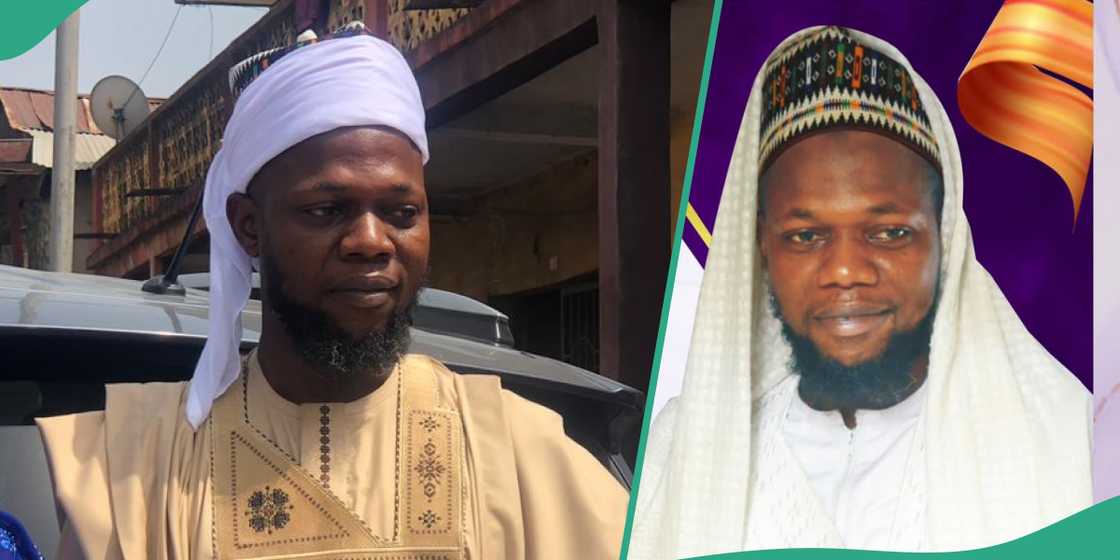
Source: Twitter
“Every member of the society enjoys full rights to life, faith, association, expression and so on.”
Are Muslims non-existent in ‘Biafraland’?
“There are no Muslims in Biafra land. Anybody claiming to be Muslim is a fraud that wants to dupe the Muslim community.”
This claim is false, as Nigeria is home to about 13,500 indigenous Igbo Muslims.
In the course of the report, this journalist spoke to several Igbo Muslim devouts. In fact, the incumbent chief imam of the country’s national mosque in Abuja, Sheikh Iliyasu Usman, is Igbo, from Enugu state.

Read also
Anthony Joshua: $180K donated for late trainer Latif Ayodele after fatal crash in Ogun, Nigeria
Pictorial about reported child-bride death in Yemen
Presenting a hateful rhetoric, @NwobodoBiafra shared a screenshot of an article about an eight-year-old girl in Yemen who allegedly died after suffering internal bleeding on her wedding night. In Yemen, Islam is the dominant religion.
The screengrab also contains images of the supposed young victim and a grey-bearded man, portraying them as the couple in question.
To verify whether the information was correct, Legit.ng ran reverse image searches with Google Lens. The results showed that the images of the man and the girl are unrelated to the decade-old controversial child-bride death case in Yemen. We also found that both images were unconnected.
The man in the photo is Ebrahim Yusuf Kazi, a religious leader sent to prison for paedophilia in the UK in 2011 (archived here). His picture was published on several news platforms at the time.
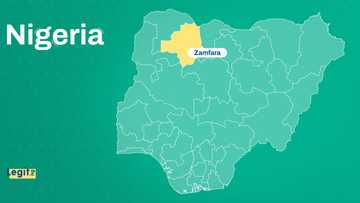
Read also
Nigerian Air Force launches airstrikes, wipes out dozens of bandits, destroys enclaves in Zamfara
We input keywords from the screenshot’s caption on the search engine Google, and it returned results from reputable news outlets about the purported bride's death. Locals claimed a girl died of internal bleeding after marrying a man five times her age. However, a Reuters report mentioned that a local security official denied any such incident had taken place.
Meanwhile, the photos posted online by @NwobodoBiafra—apparently to spite Ugwu—have nothing to do with the reported child-bride death in Yemen.
The girl’s picture was on the cyberspace before the 2013 incident; it was featured in a multimedia report on worldwide child marriage rates by Russia-1, published in October 2012 (archived here).
Therefore, @NwobodoBiafra’s tweet is misleading.
Countering hate speech in times of conflict
Authorities and tech investors need to take specific measures to protect people from harassment, stimulate responsible social media use, and emphasise that democracy relies on civil engagement.
Lanre Olagunju, former Fact-Check Editor of TheCable, now the Editor-in-Chief of CheckClimate Africa, deplored hate speech and false claims on X, saying they are not just digital nuisances but “powerful triggers of real-world harm”.
“They amplify existing divisions, incite violence, and erode trust in democratic institutions,” he said. “When disinformation spreads unchecked, it normalises prejudice and emboldens extremism. The speed and scale at which lies travel on social media platforms make it even more urgent to hold actors accountable and build digital resilience.”
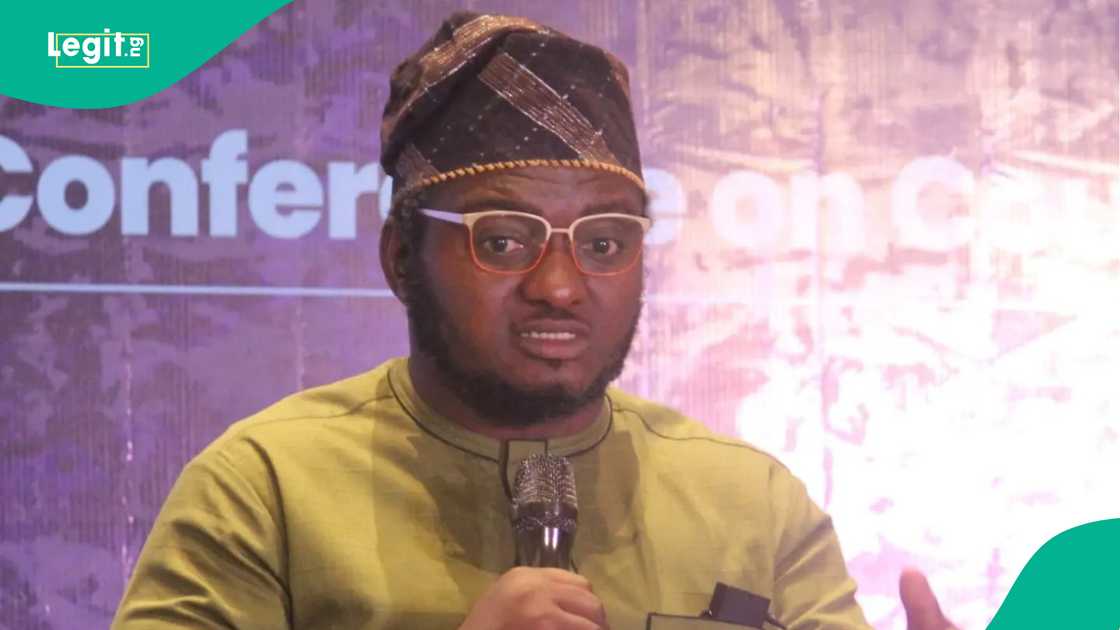
Source: Twitter
On the commercialisation of verification on X, Olagunju noted that the development has “dangerously blurred the lines between credibility and chaos”, adding that “what was once a tool for trust is now a badge anyone can buy, enabling bad actors to mimic authority and spread disinformation with ease.”
Amid weakened content moderation, the disinformation expert reasoned that X's application programming interface (API) commercialisation has turned the platform into “fertile ground for coordinated inauthentic behaviour and foreign influence operations, eroding public trust and amplifying harmful narratives, including climate falsehoods.”
Prof. Kperogi, the journalism professor, could not agree more. He says the pay-for-verification model confuses users about whom to trust, leading to potential misinformation crises during significant news events or emergencies.
“The implications for journalists, public figures, and authoritative sources are particularly severe, as their messages may be indistinguishable from paid, potentially dubious accounts. The commercialisation of verification has caused substantial collateral damage to information integrity and user trust on X,” Kperogi submitted.
For Ugwu, the victim of extreme bullying, the police acknowledged his complaints, but unfortunately, follow-ups have been minimal.
“There is often a lack of urgency when the threats are against religious minorities. I believe more proactive measures should be taken,” he said, also expressing his wish that community leaders be vocal about publicly denouncing religious-based threats.
He charged state actors to take hate crimes seriously and ensure equal protection for all.
“Educational campaigns to counter hate speech and promote religious tolerance would also go a long way,” he suggested.
By sharing their experiences, Ugwu, Tochukwu, and other persecuted Igbo Muslims hope to break the stereotypes. Mutual respect in religion is key. When people see Igbo Muslims not as threats but as fellow kinsmen and kinswomen with different beliefs, it can build bridges.
The false claims and threats were also posted here, here and here.
Source: Legit.ng



